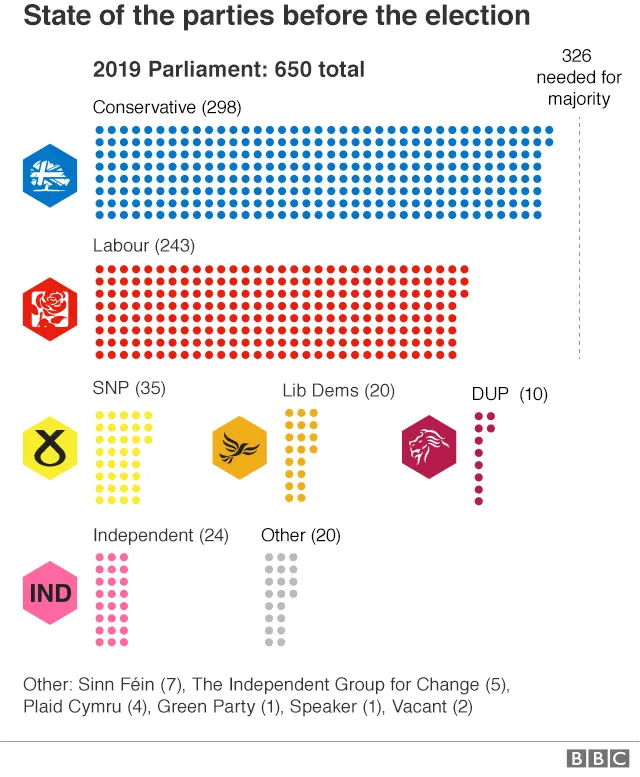General Election 2019: A simple guide to Plaid Cymru
 BBC
BBCPlaid Cymru has elected politicians in the House of Commons, the National Assembly for Wales, the European Parliament and many Welsh councils.
The party, whose name translates as "the party of Wales", supports independence for Wales.
Who is the leader?
Adam Price. He became leader in September 2018. The 51-year-old has been a member of the National Assembly for Wales since 2016. He was an MP from 2001 to 2010 when he made the headlines by attempting to impeach Prime Minister Tony Blair in 2004 over the Iraq War. In 2005, he was ejected from the House of Commons for saying Mr Blair had misled parliament.
What is Plaid Cymru hoping to achieve in this election?
Plaid Cymru only stands in Wales, and therefore cannot win the UK-wide election outright. In recent times, the party has stood in all 40 Welsh constituencies. This time, however, it has stood aside in several seats as part of a pro-EU electoral agreement with the Liberal Democrats and the Green Party. Plaid Cymru had four MPs in the last Parliament and it will be hoping to increase that number at this election.
Five key election pledges
The party launched its 2019 manifesto, called Wales, It's Us, on 22 November. It sets out the policies it wants to see introduced by the next UK government.
Here are five policies that feature in it:
- Back a second EU referendum
- Instigate a £20bn "green jobs revolution" in Wales
- Pay an extra £35 a week to children in low-income families
- Electrify Wales' main rail lines by 2030
- Spend an extra £300m a year on Welsh schools and colleges


Where does it stand on Brexit?
Plaid Cymru is opposed to Brexit and campaigns to remain in the EU. It also wants a referendum on the final Brexit terms.
Plaid Cymru policy in a tweet:
Allow X content?

How many members does it have?
In October 2018, it had 10,000 members.
What is Plaid Cymru's history?
Plaid Cymru was formed on 5 August 1925. During the first five decades of its existence it experienced little electoral success but campaigned vigorously on cultural issues, particularly around the Welsh language.
Its first MP, Gwynfor Evans, was elected in the Carmarthen by-election, in 1966 - a result that helped transform the party's fortunes.
In the first Welsh Assembly election in 1999, Plaid Cymru won 17 of the 60 seats, and between 2007 and 2011 it formed part of a coalition government with Labour. In Westminster, it has never had more than four MPs.
